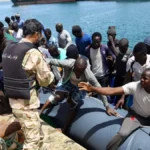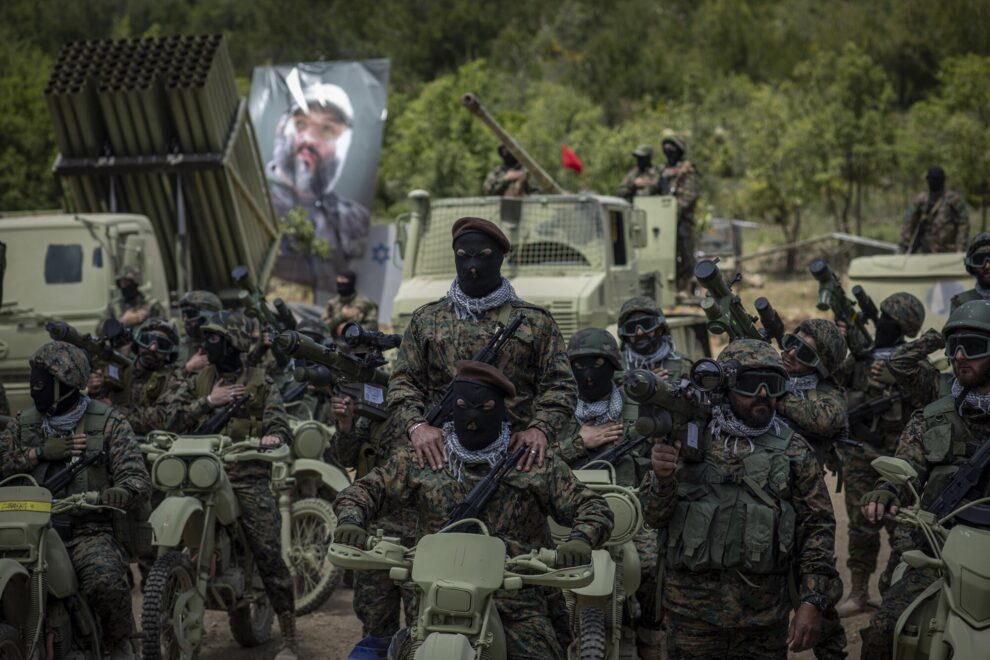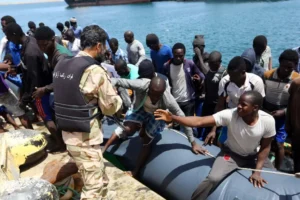Israel has killed a further seven Hezbollah fighters on its northern border with Lebanon, taking the total death toll of Hezbollah fighters to 78 since the Hamas attack on Israel on 7 October.
The rising death toll in Lebanon and the killing of 18 Palestinians by Israeli security forces in the West Bank on Thursday prompted the Iranian foreign minister, Hossein Amir-Abdollahian, to declare that a wider regional escalation of the conflict was inevitable.
Hezbollah, the Lebanese political and militant group and Iran’s most prominent proxy movement, named the seven fighters in a statement that said they were “martyred on the road to Jerusalem”, the phrase Hezbollah often uses to record deaths. The Hezbollah death toll now well exceeds the numbers killed in the 2006 war with Israel, prompting internal debates about its next steps.
The group’s leader, Hassan Nasrallah, will make his second speech this month on Saturday, setting out his latest thinking. He ended his last one-hour speech on 3 November by saying he was leaving all military options on the table and that this dispute with Israel was of a different order to all its predecessors.
Iran’s alarming forecast about the trajectory of events will be tested when Saudi Arabia convenes an extraordinary joint Islamic-Arab summit in Riyadh on Saturday.
The kingdom had been scheduled to host two extraordinary summits, the Organisation of Islamic Cooperation summit and the Arab League summit, this weekend.
But late on Friday, Saudi Arabia’s foreign ministry said the two would be combined “in response to the exceptional circumstances taking place in the Palestinian Gaza Strip as countries feel the need to unify efforts and come out with a unified collective position”.
Iran’s president, Ebrahim Raisi, is due to attend and the OIC is expected to demand concrete steps to contain Israel.
In a serious test for Saudi diplomacy the crown prince, Mohammed bin Salman, will have to walk a fine line between being seen merely to repeat previously unheeded appeals to Israel to show constraint, or instead to start to take practical steps such as an oil boycott of Israel. Prince Mohammed has previously been extremely reluctant to consider a boycott, which has been the lead demand of Iran.
Raisi said in advance of the meeting: “My assessment is that if the emergency meeting of the [OIC] in Saudi Arabia does not lead to helping and saving the Palestinian nation, the scope of conflicts in the region will increase. The region will realise that Islamic governments are unable to help the people of Palestine and Gaza.”
He has been pressing Arab governments to break their ties with Israel. Speaking on Friday, Prince Mohammed limited himself to condemning violations of international law by Israel in Gaza.
However, Saudi Arabia regards a conditional offer of normalisation dependent on Israeli concessions over a Palestinian state as some of the best leverage the Gulf countries possess over Israel.
In the run-up to the summit, the emir of Qatar, Sheikh Tamim bin Hamid al-Thani, met the Egyptian president, Abdel Fatah al-Sisi, in Cairo to discuss “intensive efforts” to achieve a ceasefire and protect civilians in the Gaza Strip.
On Wednesday, the US special envoy for Middle East humanitarian issues, David Satterfield, dismissed the idea that Iran and its proxies were planning to join the war in any meaningful way. “We do not believe that a conflict involving Lebanon and Israel is in any way inevitable,” Satterfield said. “The here and now reality is there is no indication on any side that there is an intent to precipitate a conflict or a war.”
But that estimate is not universally shared. On Thursday, Yemeni rebels claimed responsibility for firing a “salvo of ballistic missiles” towards the city of Eilat, in southern Israel, 2,000km (1,240 miles) from their capital, Sana’a. The Israeli army confirmed it intercepted projectiles using the Arrow missile defence system and Patriot anti-aircraft batteries. The day before, the Houthis shot down a US army MQ-9 drone off the coast of Yemen.
Source: The Guardian











